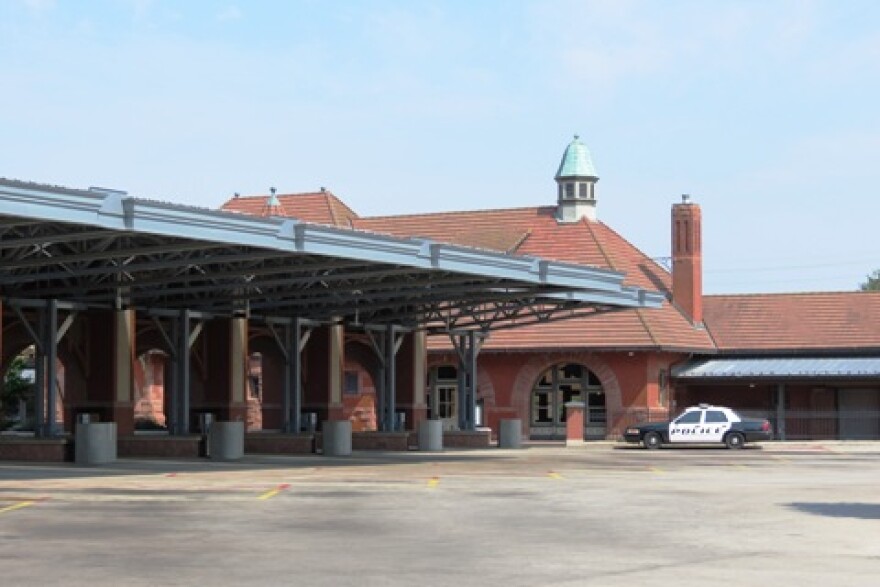When a gunman opened fire at Kalamazoo’s Metro Transit station on Saturday, November 27, security guards on patrol there were unarmed. But that wasn’t always the case.
“We were fortunate to have sworn police officers from either the Kalamazoo Department of Public Safety or the Sheriff’s Department and over time with community priorities and staffing, well, they are no longer able to provide those services,” says Metro Transit Executive Director Sean McBride.
WMUK confirmed that the Kalamazoo Department of Public Safety provided armed officer security until February 9, 2020. The Kalamazoo County Sheriff’s Department took over for next seven months but ended the partnership in September of 2020. Both departments confirmed that staffing shortages were behind the decisions. Kalamazoo County Undersheriff Jim VanDyken told WMUK that, like other industries during the pandemic, they lost staff due to retirements and career changes.
After the partnership with the Sheriff’s Department ended, McBride says Metro turned to an

unarmed security firm. McBride says he's pleased with how the shooting incident was handled.
“Everyone did their job right,” McBride says. “Our drivers did their job right on keeping passengers as safe as possible. A security firm did their part. And Kalamazoo Public Safety came on scene and took care of the situation. They were on scene within two minutes.”
McBride says Metro Transit will review safety protocols to determine what changes should be made to protect the public and transit employees. And he says it will carefully consider all options. But McBride says that will take time as it addresses the emotional needs of staff.
“Right now, our first priority is dealing with the trauma of the situation,” McBride says. “It’s a traumatic incident for our employees and our passengers.”
McBride says Metro has a chaplain available for employees to talk to, and the transit workers union also sent a grief counselor from its national headquarters to help employees cope with the shooting.
The Kalamazoo Transportation Center on Burdick Street houses offices for drivers. It's also the central hub for passengers transferring between busses and trains.
“We’re going to go through a process to really look at our practices and procedures and best practices at other transit agencies and see how we can provide the safest environment possible for our employees and our passengers,” McBride promises.
The incident ended when police shot and killed the alleged gunman. All three shooting victims were treated for non-life-threatening injuries and released from the hospital.
In a news conference Wednesday, December 1, police said the Metro Transit incident may have been a case of "suicide by cop." Because there was an officer-involved shooting, KDPS handed the investigation over to the Michigan State Police. MSP Lt. Duwayne Robinson says they his department is still sifting through a large amount of video evidence, but he says early reports that the gunman was a passenger on the bus, or got on the bus and started shooting, are inaccurate.
Kalamazoo’s mayor says the shooting might have been prevented. David Anderson says that's true of a lot of other gun violence. He says warning signs are often ignored by friends or family and there's nothing wrong in suggesting that someone get help.
"We need to make sure in our community as we talk to each other, and our friends, that we de-stigmatize mental health services," Anderson says.
In that way, Anderson says people can make the world a more hopeful place for everyone.
"Be beacons of that hope for each other so that people don't feel like, 'This is all that's in front of me; this is the only choice I have.' And that is huge cultural change, in my opinion, right now."




